E-Closings Are Coming to North Carolina: What Buyers Need to Know

If you could close on your next home from your couch in sweatpants, would you do it? In North Carolina, that option is closer than ever. E-closings—fully digital real estate closings—are expected to be available statewide by the end of 2025.
Whether you’re buying your first home or just trying to avoid the rush-hour drive to your attorney’s office, here’s what you need to know.
What Is an E-Closing?
An e-closing allows you to complete the entire real estate closing process electronically. That includes:
-
Signing documents with an e-signature
-
Completing notarizations remotely
-
Meeting with your attorney virtually, rather than in person
North Carolina has allowed hybrid closings for years, where some documents can be signed electronically. The big change is coming with remote notarization, which will no longer require the buyer and notary to be in the same room.
How It Works
With a full e-closing, everything happens online using secure software. The process includes:
-
Identity verification (such as showing ID and answering security questions)
-
Digital signatures for all documents
-
Virtual meetings with your closing attorney
-
Digital notarization using approved platforms
The process meets all legal requirements. You are still verifying identity, confirming the capacity of the signer, and using a notary with a valid license.
Will E-Closings Replace Traditional Closings?
Not completely. Many buyers will still prefer the in-person experience, and most law firms, including Thomas & Webber, will continue to offer both. However, e-closings are ideal for:
-
Buyers with tight schedules
-
Out-of-state clients
-
Anyone who prefers convenience
Attorneys still play a key role in explaining documents and answering questions, even in a virtual setting.
What Are the Benefits?
E-closings offer several advantages:
-
Shorter appointments
-
Flexible scheduling
-
No travel required
-
Faster document signing
-
Fewer power of attorney issues when people are unavailable
For buyers with full-time jobs, young kids, or limited flexibility, this can make a big difference.
What to Know Before You Choose an E-Closing
Here are a few things to check early in the process:
-
Ask your lender if they allow e-closings. Not all do.
-
Ask your attorney if they have a certified e-notary on staff.
-
Make sure you’re comfortable with technology. You will need to use platforms you may not have seen before.
-
Be alert to fraud. Never wire money without confirming instructions by phone with your attorney’s office.
If you’re concerned about wiring funds or identity verification, the in-person route may be a better fit.
Final Thoughts
E-closings are not just a trend. They represent a shift toward more flexible, efficient real estate transactions. That said, they are not right for everyone. You still need a qualified attorney, a cooperative lender, and a willingness to use digital tools.
At Thomas & Webber, we’re ready for this next chapter. Whether you’re closing in person or online, we’ll guide you through every step with the same care and attention we’re known for in the Lake Norman area.
📩 Ready to close with confidence? Send your contract to [email protected].


